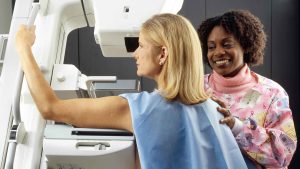Post-Mastectomy Care: The Essentials of Breast Cancer Screening
Regular breast cancer screening is vital for all women, including those who have undergone a mastectomy from breast cancer. Common screening tests like mammograms, MRI scans, and ultrasound imaging allow early detection of tumors and early intervention. Mastectomy patients require specialized screenings compared to those who have not had a mastectomy because standard mammograms image breast tissue that is no longer present. All women should follow their doctor’s advice on recommended screenings, and mastectomy patients may need more frequent testing than the average patient. Catching new tumors early is key to breast cancer removal.
What to Expect Post-Mastectomy
There are a few options when it comes to mastectomy surgery. A single or “total” mastectomy removes the entire breast, while a double mastectomy removes both breasts. The surgery aims to remove all cancerous tissue, and sometimes additional tissue too, even if not cancerous yet.
After surgery, patients need to monitor the chest area for proper healing and watch for signs of infection like redness or fluid drainage. Follow-up appointments allow doctors to check incisions, change dressings if needed, and track recovery progress. Depending on the type of mastectomy, some women pursue reconstructive surgery down the line to restore breast shape.
Long term, patients will need continued screenings to ensure cancer does not return. Mammograms, MRIs, ultrasounds, and skin exams allow doctors to monitor remaining chest tissue for abnormalities. Patients may meet with an oncologist to address any adjuvant therapy options, too, like hormone therapy medications. Screening frequency depends on individual risk factors.
Recovering emotionally and psychologically from losing one or both breasts can be challenging too. Having a strong support system is key – be open with loved ones about struggles so they can provide care or listen. Some find counseling helpful for processing difficult emotions and intimacy changes. Support groups connect patients with others who have similar experiences. Over time and with self-care, most women feel more like themselves again.
The mastectomy journey is unique for every patient. Being knowledgeable, utilizing available resources, and communicating openly with your care team allows for the best possible physical and emotional outcomes. Let loved ones help lift you up during the hardest parts, and trust you have the strength within to overcome this challenge in your life’s path.
Mammograms and Continued Screenings
Getting regular mammograms is still important after a mastectomy, even when one or both breasts have been removed. Mammograms allow doctors to image the remaining breast tissue and check for any new abnormalities or tumors.
If you have had a single mastectomy, mammograms will be done on the remaining natural breast tissue. It is vital to continue getting mammograms on the intact breast at whatever frequency your doctor recommends. For those who have had a double mastectomy with complete removal of both breasts, mammograms are still beneficial for imaging the chest wall area. There is often some residual breast tissue left after surgery, and mammograms can detect if cancer comes back in this tissue. While mastectomies remove the significant risk of breast cancer, imaging tests like mammograms are an important tool in monitoring rare cases of new abnormal tissue growth.
Additionally, post-mastectomy patients typically need regular MRIs and ultrasounds of the chest wall and remaining breast tissue. Skin exams are also essential to check for signs of recurrence. Continued screening provides peace of mind and allows any new tumors to be caught and treated as soon as possible.
Should I Consider Genetic Testing after Single Mastectomy
If you have been diagnosed with breast cancer and underwent a single mastectomy, genetic testing may provide important information to guide your future cancer screening and prevention plans. Getting tested for mutations in genes like BRCA1 and BRCA2 can help estimate your lifetime risk of developing cancer again.
BRCA gene mutations are linked to an increased chance of developing breast, ovarian, and other cancers. Everyone has BRCA genes, but changes or mutations in these genes are passed down in families and can significantly raise cancer risk. Genetic testing for breast cancer analyzes your blood sample for mutations in these high-risk genes.
Those who test positive for a BRCA mutation have up to a 70% lifetime risk for a second breast cancer diagnosis. This risk is lowered by a mastectomy removing one breast, but it is still substantially higher than average. If you undergo BRCA testing after breast cancer treatment and test positive, your doctors can tailor specialized screening schedules to maximize early detection of any potential tumors in the remaining tissue. Remaining vigilant with screenings allows any subsequent cancers to be diagnosed early when treatment is most effective. Those who test negative for BRCA mutations still require routine post-mastectomy breast screenings but may need less frequent testing. Consider discussing genetic testing with your care team after a mastectomy to understand your complete cancer risk.
Importance of Choosing the Right Breast Cancer Specialist
When looking for a qualified surgeon, oncology team, and follow-up care after a mastectomy, it’s vital to find knowledgeable experts you can really trust. Premier Surgical Network has specialized breast surgeons and staff to support your care journey every step of the way. Their compassionate team helps guide long-term monitoring and is up-to-date on the latest mastectomy recovery best practices. Premier Surgical Network takes time to understand patient concerns and goals when tailoring a care plan. Whether pursuing breast reconstruction, managing screening schedules, or needing emotional support through recovery, rest assured Premier Surgical Network’s experts will be there. Contact Premier Surgical Network today to discuss your post-mastectomy care options with a dedicated breast cancer surgeon in New Jersey. Don’t navigate the next steps alone – let Premier Surgical Network’s compassionate team support you.

